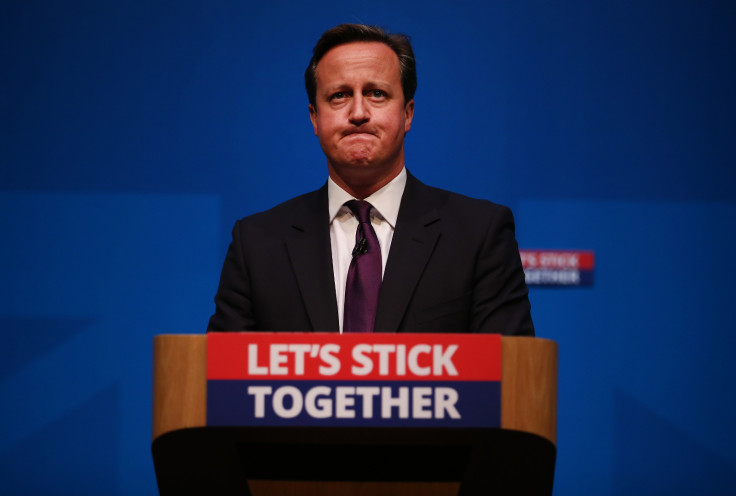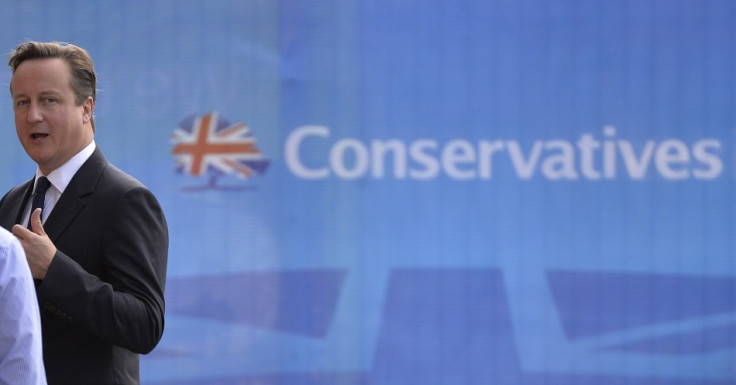Scottish Independence: David Cameron and Ed Miliband May Both Have to Quit

No matter how Scotland votes in the referendum debate, the panic, recriminations and even bloodletting in the Westminster parties will start within hours and be played out in the most public way possible.
Just two days after the result is announced, the annual party conference season will start, with all leaders facing intense demands to offer some clarity about where on earth they go from here, or even for their heads.
If there is a "yes" vote, the fallout will be seismic and both David Cameron and Ed Miliband will face pressure to quit - Cameron for losing the Union and Miliband for losing a huge chunk of the Labour "family".
It is impossible to predict how that would play out but the feeling in Westminster is that Cameron would find it impossible to continue - and may actually chose not to - and only the method and timing of his demise would remain uncertain.
In those circumstances, normal politics would be on hold for the foreseeable future anyway as the full shock of the break up of the UK sank in and negotiations with Alex Salmond began.
I don't see why people in the East Midlands should be worse off to the tune of thousands of pounds than the people of Scotland.
But the consequences of a "no" vote, which still seems likely, will pitch the parties into a period of turmoil as they attempt to hammer out a joint agreement on exactly what they meant by that "vow" to give the Scottish parliament more power.
That will prove difficult enough, particularly with the promise to keep the Barnett formula - a system of grants that allocate state spending for Scotland, Wales and Northern Ireland - which will lead to a serious backlash in England and Wales, as the Scots will be better off than them with it still in place.
And there is no certainty they could manage to pull something together in order to allow legislation before the next election, as promised by the timetable set out by Gordon Brown.
But that leaves the wider constitutional row that is bound to follow with growing demands for devolution to be extended to other nations and regions in a bid to match the concessions made to Scotland.
There is the real prospect that when the two major party leaders make their big conference speeches, they will be under pressure to outbid each other and make increasingly bold offers to Wales, the regions and big cities to prove they are the ones offering real change.
The Tories, at least, are facing a serious period of internal wrangling as the factions demanding an English parliament, regional devolution or a federal state press their cases on Cameron and threaten to block the implementation of the "vow" to Scotland – once they know exactly what it entails.
Those battle lines have already been drawn with Conservative backbenchers including John Redwood, Christopher Chope and Bernard Jenkin insisting there would have to be much wider devolution to match the Scottish pledge.

Wellingborough's MP Peter Bone, a leading Eurosceptic, has already put down a marker, saying: "I don't see why people in the East Midlands should be worse off to the tune of thousands of pounds than the people of Scotland."
It appears the three Westminster leaders all agree and they have already started promising that things will have to change, whatever the outcome of the referendum. There is even some optimism that the extraordinary voter engagement in Scotland can be replicated across the rest of the country.
Cameron may well decide the only way to avoid a major internal party rift in the last few months before the general election would be to promise the creation of a cross-party constitutional conference charged with the task of mapping out a new deal for the nations and regions.
But the uncertainty and the unanswered questions pose a real challenge to all the leaders and threaten to come to a head in the hothouse atmosphere of the party conferences.
The prime minister will feel that backlash most sharply as all his plans to focus voter attention on to the recovering economy in the few months left to the general election may well be drowned out by the cacophony of demands and recriminations over the referendum.
© Copyright IBTimes 2024. All rights reserved.






